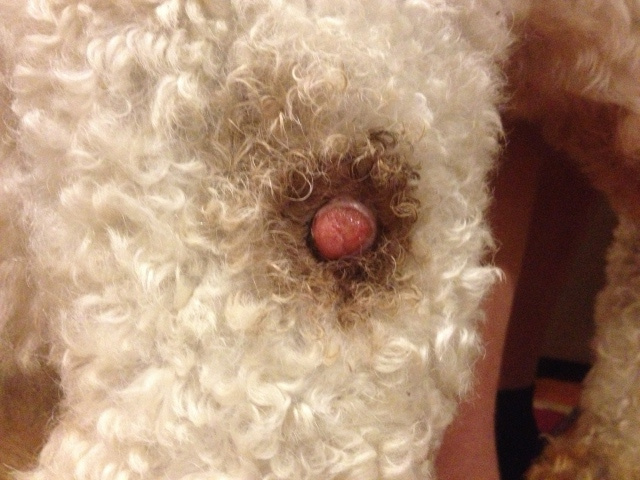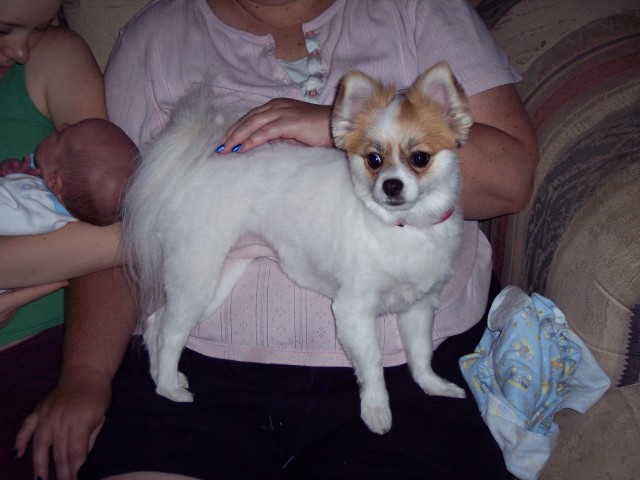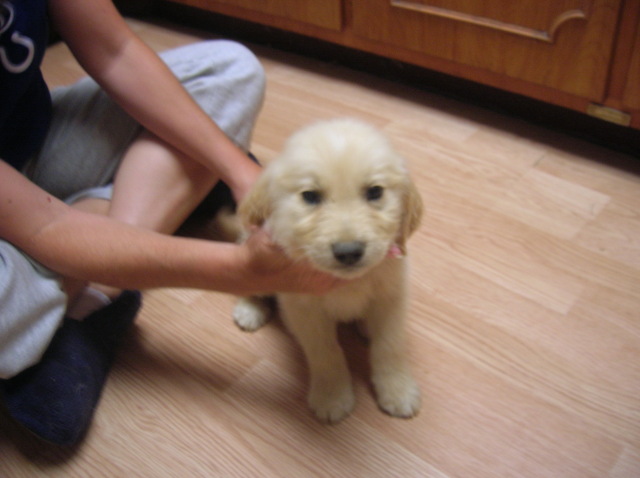QuestionMy Chihuahua has spent most of the last two days in an oxygen chamber, he is 11 1/2 years old. His initial X-rays revealed that his enlarged heart could be slightly obstructing his airway and some fluid was in the lungs - bloodwork was good. He was given a bronchodilator and something to pull fluid from the lungs. His heart was evaluated by a cardiologist at the ER and everything looked good, no valve damage or heart disease. The vet suggested COPD and gave him something else, now we wait. They say when he is removed from oxygen within a few minutes his tongue turns blue so they put him back in. However, when we drove him from the vets to the ER his tongue turned blue within a few minutes but he stabilized shortly after and in fact looked great for the 20 minute drive. I figured there is an adjustment period after coming out of pure oxygen, isn't there? We have visited with him twice (in his O2 chamber) and both times he looked great and was very excited. Is there effective treatment for COPD and are there nebulizers or portable O2 systems that are recommended? And what does the long term management of COPD entail?
AnswerThis is a very complicated problem. I am concerned about one thing you said the vet said, however. You said, "His heart was evaluated by a cardiologist at the ER and everything looked good, no valve damage or heart disease," yet you state he has an enlarged heart. That alone is heart disease.
Chihuahuas are prone to large airway problems as it is. We see many of these dogs with chronic tracheal collapse.
COPD is Chronic Obstructive Pulmonary Disease. I am sure the vet told you that but I wanted to be sure you understood it.
The prognosis for a dog with this is guarded and not usually good.
There is very little out there information wise on COPD in dogs. I did find this:
CHRONIC BRONCHITIS
A cough that persists for more than eight weeks has become chronic. Such coughing is rarely caused by infection, although infection may precede its development. It is actually due to a persistent inflammation of the bronchi; the condition is called chronic bronchitis or, more accurately, chronic obstructive pulmonary disease (COPD).
COPD usually affects middle-aged and older dogs. Although an exact cause is rarely discovered, pollutants and allergens are usually implicated. The disorder is fairly common in west Highland White terriers, a breed that has a known risk of developing allergic skin conditions.
Coughing may be triggered by exercise or excitement and is worst at night. The coughing is dry and harsh and may end with gagging and retching of foamy saliva, which is often mistaken for vomiting. In all other respects, an affected dog appears normal.
Diagnosis
X-rays of a dog with COPD reveal thickening of the bronchi and possibly emphysema (rupture of the air sacs in the lungs), although mild emphysema is not visible on X-rays. Bronchoscopy and bronchial washes may be performed to check for any infected debris in the airways.
Treatment
Initial management may include a short course of corticosteroid drugs to reduce inflammation. If these produce a dramatic improvement, the dose is reduced, with the vet aiming at low-dose alternate-day treatment. Bronchodilators are used to ease the dog's breathing, while cough medicines containing codeine are given to reduce the tickle of the cough.
http://www.gopetsamerica.com/dog-health/chest-lung-conditions.aspx
As with most respiratory ailments in dogs, steroids help reduce inflammation and help the dog breath better.
As far as the oxygen is concerned, since he did stabilize once he was down the road, (which is a good thing) he will most likely have these episodes from now on. You might want to rent a small oxygen tank to have at home for him when he has these cyanotic episodes.
You will most likely be sent home with human albuteral inhalers as well as steroids and other medications.
As I said, however, the long term prognosis is not usually good for these dogs. So you might want to be preparing yourself for a hard decision down the road.
I hope he does well for a long time however.
Let me know how he is doing in a week or so.

 Growth on standard poodle rear leg
Question
Standard poodle growth
Hello,
My female
Growth on standard poodle rear leg
Question
Standard poodle growth
Hello,
My female
 Runny stool, vomiting,
Questionour Pom "Snoball"
QUESTION: Ou
Runny stool, vomiting,
Questionour Pom "Snoball"
QUESTION: Ou
 Guinea Pig Eyes
Question
Bad Eye
Hello, yesterday we purchased a
Guinea Pig Eyes
Question
Bad Eye
Hello, yesterday we purchased a
 Heartworm treatment side effects
Question
Charlie
My dog, Charlie, is a 30lb. mut
Heartworm treatment side effects
Question
Charlie
My dog, Charlie, is a 30lb. mut
 thank god for your sweet heart
QuestionRiley
QUESTION: i feel so much better an
thank god for your sweet heart
QuestionRiley
QUESTION: i feel so much better an